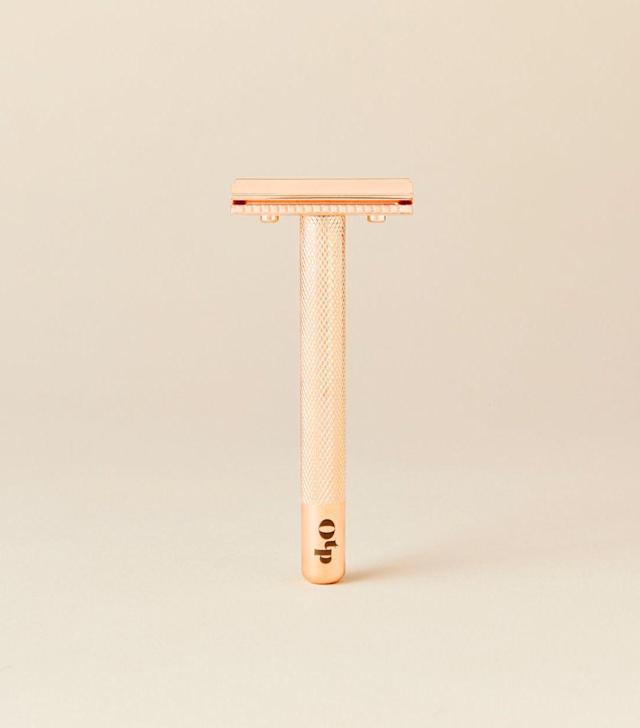
CBD oil can have side effects that include high blood pressure, anxiety, depression and more. The fact that there is no standard method to test CBD oil products can make it difficult or impossible to determine what each one contains. You should look for a provider who will submit its products to independent lab testing.
Cbd Oil Side Effects
Among the many side effects of CBD oil are drier mouth. This happens because CBD interacts with the salivary glands in the mouth to inhibit saliva production. This may prove to be beneficial for those with dry or sensitive mouths. If you have dry or sensitive mouth, you need to drink more water.
Talking with your healthcare provider is the best way for you to avoid these side effects. Before you try CBD oil, make sure to consult your doctor if you're already on prescription medication. CBD oil should not be taken if you're taking any other medications. This is especially important if you are already taking prescription drugs or have blood pressure problems. You might also feel nausea or other side effects.
Some research suggests that CBD could cause damage to the liver and even lead to cancer. This is not supported. Studies have shown that CBD alters the levels of certain liver enzymes in the blood. These enzymes trigger certain body reactions. This does not necessarily indicate liver cancer. This simply means your liver has suffered some trauma.
CBD oil may cause some sleepiness. This is why you should either reduce your CBD oil intake or only take it before you go to bed. High blood pressure can be caused by CBD oil. Do not consume caffeine with CBD oil. Sunlight can boost your energy and make it easier to fall asleep at night. Anxiety is often treated with CBD oil. However, high doses may cause irritability and anxiety.
CBD has been suggested to help depression. It is believed to affect the brain's levels of serotonin, which may be helpful for those suffering from depression. It may also alter epilepsy symptoms, such as seizures.
Its effects on anxiety
CBD oil acts as an antidepressant and a natural way to increase brain serotonin levels. It has been proven that CBD oil can reduce anxiety levels without the side effects associated with pharmaceutical anxiety medications. It interacts with the Endocannabinoid System receptors in the body. This system regulates sleep. It also controls pain and immunity.
One large retrospective study examined patients who were treated with CBD for various anxiety and sleep issues. Patients' monthly chart reviews documented changes in anxiety levels and quality of sleep. People with Parkinson's disease, which affects motor and cognitive functions in the brain, saw CBD's effects on their sleep quality. While CBD's effects on sleep quality have not been thoroughly studied, there are recent studies that suggest it may help to reduce snoring which is a common symptom associated with anxiety.

CBD appears to lower cortisol, which is a stress hormone, in both animals and humans. Chronic inflammation is linked to high levels cortisol. CBD oil may also act as a sedative and limit the production of cortisol. The study also found that moderate CBD oil intake decreased the levels of cortisol, which in turn reduced anxiety levels and promoted sleep.
There are many questions about CBD oil's ability to reduce anxiety. But, research has shown that it is worth exploring. The safest and most effective way to use CBD oil in your body is from natural plants. CBD oil not only relieves anxiety but also acts as a neuroprotective and pain relieving agent.
Its effect on depression
Evidence is growing that CBD oil can be used to treat depression. Even though animal studies have indicated promise, clinical studies need to be done to determine if CBD oil can treat depression. CBD oil is not recommended for use in depression. It's best to consult with a medical professional before using CBD oil. You should also know that CBD can increase the side effects of some antidepressants.
Research has shown that CBD oil can increase levels of a neurotransmitter associated with anxiety and depression. Specifically, it works on 5-HT1A receptors, which are found in the brain. These receptors control mood and behaviour. CBD, a primary inhibitory substance in the brain that reduces electric activity and reverses stress, is now more active.
CBD interacts with serotonin-producing receptors in the brain, according to research. Serotonin plays a vital role in mood regulation and happiness. As such, keeping serotonin levels in balance is a key therapy for depression. Researchers believe CBD may be able to affect the brain's serotonin levels, though more research is necessary. In animal models and humans, the presence of these receptors has been linked to lower levels of depression.
Depression can be a very serious condition with severe consequences. Statistics show that at least 264million people around the globe suffer from some form of depression. Several drugs are available for treating depression, but some come with significant side effects.
Its impact on blood pressure
CBD oil is recommended by the World Health Organization for high blood pressure patients. People with hypertension will find CBD oil a good option due to its safety profile. However, it is a good idea to consult your doctor before taking CBD oil. If necessary, your doctor can adjust your blood pressure medication.
There are many causes of high blood pressure. Also, a diet high in fruits and vegetables can help. Managing your weight and exercising regularly are also important. You need to learn how stress can be managed, as this will help lower blood pressure.
There are several different forms of CBD oil available on the market. The most effective form is usually an oil or tincture. It has a higher bioavailability, which means that it's absorbed faster. You can also opt for a sublingual CBD form that delivers CBD to your whole system. Since CBD products are not regulated like prescription drugs, consumers need to be careful about which ones they choose. Look for quality products that meet certain standards.
CBD offers many benefits. CBD reduces anxiety and improves focus. Multiple studies have shown CBD has the ability to lower blood pressure and hypertension. It also lowers the risk of stroke. More research is required to fully understand CBD's effects on cardiovascular disorders.

Although CBD oil has been shown to be a great help for people with high blood pressure, it cannot be considered a cure-all. You should combine it with lifestyle changes, healthy eating habits, and lifestyle modifications. You can safely manage your blood pressure by quitting smoking and drinking alcohol.
Its effects on cancer
Researchers have discovered that CBD oil can improve cancer survival. This effect is mediated by altering the expression of several CYP enzymes. Moreover, CBD may interact with medications that are metabolized by the liver. The exact mechanism of CBD action is not yet known.
Researchers conducted numerous studies to examine the effects of CBD on cancer. The CBD oils were diluted with DMSO. The CBD oils were found to have a strong impact on the viability and viability of three cell types in vitro. The viability of two NSCLC cell line H460/SW480 was reduced by CBD oil, as well as invasion. While the A549 cells did show no sign of cell death, CBD-treated cells showed significantly lower rates of tumor invasion.
CBD also inhibits EGF/EGFR pathway, and inhibits expression of phalloidin. These are two important proteins for the invasion of cancer cells. These effects are similar in nature to the ones seen in lung carcinoma. CBD is also known to inhibit the production and growth of TIMP-1, which are crucial in the development of cancer.
It is still unclear if CBD is effective in treating cancer. However, more research is necessary to confirm this. Side effects of chemotherapy can cause nausea and vomiting in cancer patients. This can lead to weight loss and a decreased appetite. These patients are able to use CBD oil for their treatment.
Research on the effects of CBD oil and cancer has shown that CBD oil does not cause tumor growth. Instead, CBD and THC combine to create the desired effect. These studies show that CBD may improve the efficacy of conventional cancer treatment methods. It has been shown to stop tumor growth in animal models and test tubes. Although the research on cancer is not complete, several scientists are optimistic about the benefits of CBD and are hopeful about the potential for using it to treat cancer.
FAQ
What does the future hold for the CBD Industry?
The future is bright for the CBD industry. It is easy to see why this sector is so popular. This market is expanding exponentially with CBD products being purchased globally at a total of $1 billion.
According to Statista, worldwide sales of cannabidiol (CBD), are expected to hit $22.4 billion in 2019. That's almost 200% more than in 2018!
It is also expected that the CBD market will grow at a compound annual growth of 22.5%. That would translate to approximately $6.8 million in revenue by 2020.
This is great news for companies looking to enter this space as well as those already operating in the sector. However, we must be aware that the CBD market is still very much in its infancy and will face some challenges along the way.
Is the CBD industry on the rise?
Yes, it is! As legalization spreads throughout North America, this growth is expected continue. Canada was the first country to legalize recreational cannabis use. Several states also have medical marijuana laws.
As more states legalize medicinal marijuana, this trend will likely continue for at minimum a decade.
Legalizing marijuana is also a good economic decision. Legalizing pot offers many benefits beyond providing a lucrative market alternative for farmers.
It could help decrease crime rates by reducing illegal drug availability. It could also help governments generate tax revenue.
As more people turn to legal weed, they may also choose to consume less alcohol. This would reduce hangovers and increase health care costs.
In addition, marijuana might actually improve the quality of life for those who suffer from chronic pain. Many believe THC, the active component in marijuana, is responsible for relieving symptoms like muscle spasms or nausea that can be caused by chemotherapy.
Perhaps marijuana can be used as a treatment for mental illnesses like anxiety and depression. In fact, some studies suggest that marijuana can even treat schizophrenia.
Even though the CBD sector looks bright, there are still many challenges.
Are there any studies that CBD can reduce anxiety?
CBD oil can be used to treat anxiety. It interacts with CB1 receptors and CB2 receptors in your brain. The endocannabinoid systems regulates mood and stress response.
CB1 receptor is activated when our bodies feel anxious. This receptor triggers the amygdala to activate, which is responsible in emotional processing.
When the CB1 receptor is blocked, the amygdala doesn't receive the signal to process emotions. CBD users report less negative feelings.
A 2017 study revealed that CBD lowers anxiety in patients suffering from social phobia. Another study found that CBD reduced symptoms of PTSD.
A 2018 review concluded that CBD has anxiolytic properties and could help treat generalized anxiety disorder.
Another study concluded that CBD may help with panic attacks.
Numerous studies have found that CBD can increase anxiety in mice.
The discrepancy found between the animal results and human data might be due to differences of how CBD affects humans and animals.
CBD does not have any safety data. Experts agree that CBD is safe when taken as directed.
Statistics
- OralWhere HED is the human equivalent dose, and Km is a correction factor estimated by dividing the average body mass (BM) of the species (60, 0.020, and 0.150 kg for 11 humans, mice, and rats, respectively) and by its surface area (see: Nair et al. (ncbi.nlm.nih.gov)
- The inhibition of FAAH is predicted to lead to an increase in brain and plasma concentrations of AEA, which acts as a partial agonist at CB1R and CB2R, thereby increasing endocannabinoid tone [92, 110]. (ncbi.nlm.nih.gov)
- As a substance that was federally illegal before the passage of the 2018 Farm Bill, hemp-derived cannabinoids with no more than 0.3% THC still face a regulatory grey area. (forbes.com)
- HR −16 mmHg; 95% CI −26, −6; I2 = 92%) (ncbi.nlm.nih.gov)
- A recent systematic review of human trials also reported that individuals with epilepsy receiving CBD (5–20 mg·kg−1·day−1) were more likely to experience decreased appetite than those receiving placebo (i.e., ~20 vs. 5% of patients) (ncbi.nlm.nih.gov)
External Links
How To
How to get certified for selling CBD products
CBD (cannabidiol) is one of the hundreds of cannabinoids found in cannabis plants. It has been used medicinally throughout history. This includes in South America, China, India and China. Its ability to treat anxiety, pain and epilepsy has led to it becoming increasingly popular in recent years. The U.S. does not have an official certification program yet for CBD products. Therefore, anyone wanting to make a living selling CBD products must rely on their "unofficial" self-certification.
There are two options. First, join a local canna-business owner association. This way, you can learn from others while getting support and advice. There are currently numerous associations all over the country. Another option is to go online. Online canna-businesses are now allowed in most states. If your state allows online canna-businesses, you can immediately set up a website and begin accepting orders. However, you must still register with your state's Department of Public Health. Once you have registered, it will be possible to apply for your license through the state's department public health. After you have received your license, your store is officially open and you can begin taking orders.